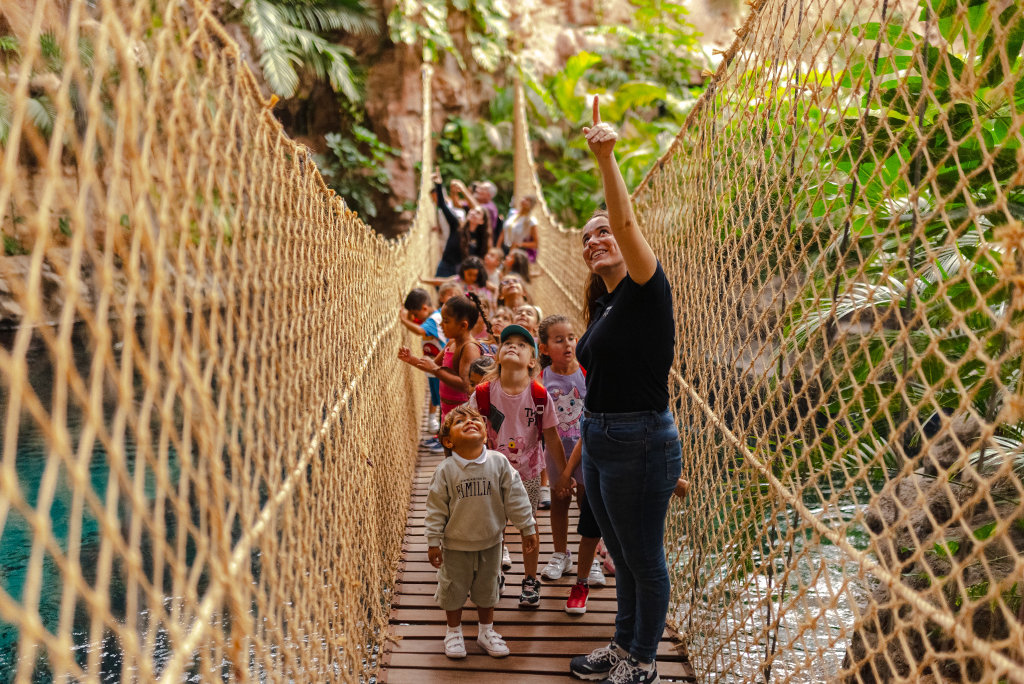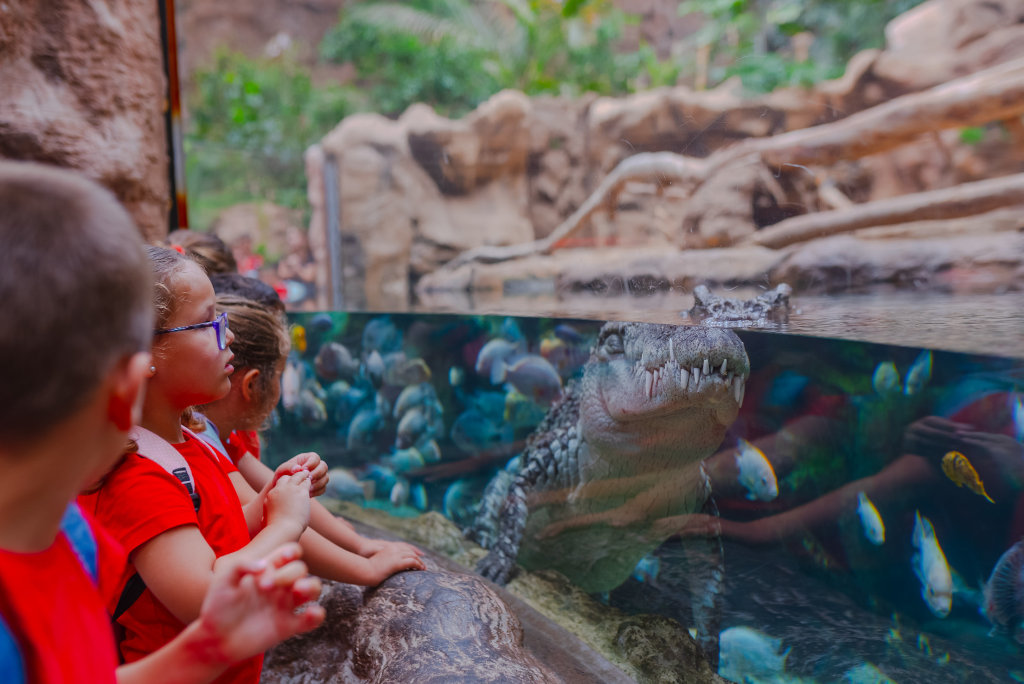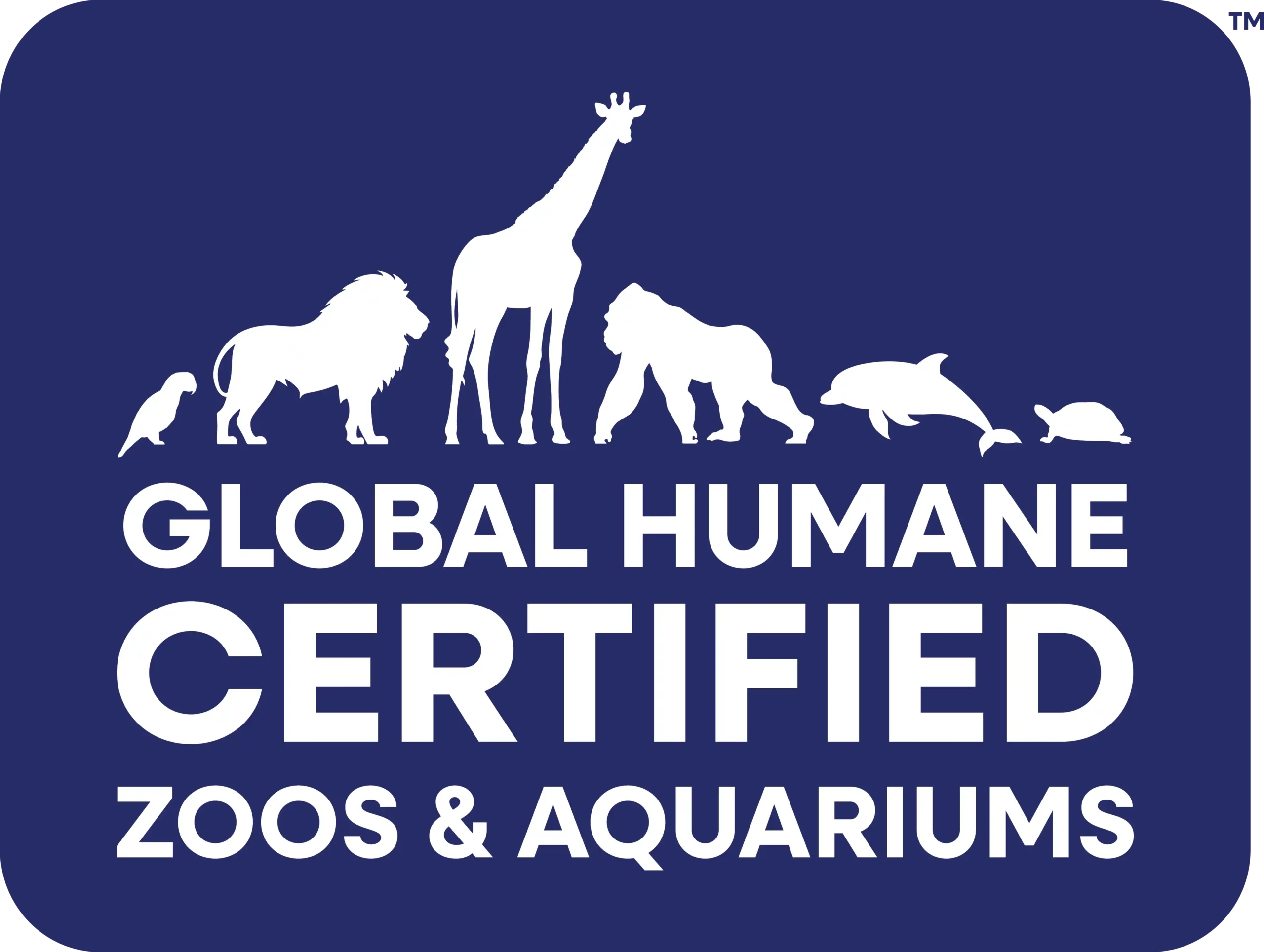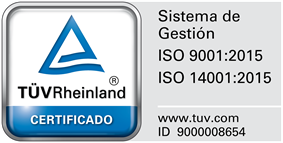The Travelling Exhibition on Cetaceans of Macaronesia has visited 75 schools, reaching 13,494 students with content about the archipelago’s marine fauna, its conservation, and the challenges it faces.
Furthermore, sustainability initiatives have become an integral part of the experience: a total of 34 beach clean-ups were organized, involving 2,541 students committed to protecting the marine environment.
With the end of the 2024/2025 school year, the Loro Parque Group consolidates its role as an educational reference in the Canary Islands, having reached a record number of more than 40,000 students who have participated in its educational and awareness-raising activities.
During this period, the group’s education team has carried out an intensive information campaign that has included activities in classrooms, teacher training, beach clean-ups, science fairs and virtual lectures. The president of the Loro Parque Group, Wolfgang Kiessling, recalled that ‘education is the first step towards nature conservation. If we succeed in awakening curiosity, respect and love for nature in young people, we sow hope for the future of our planet.’
The figures back up this mission. In terms of personal educational visits alone, more than 16,300 schoolchildren, accompanied by educators from the Loro Parque Fundación, took part in guided tours of Loro Parque and the Poema del Mar Aquarium, as well as activities designed to promote knowledge about wildlife, marine biodiversity and environmental protection. Sustainability actions became an integral part of the programme: 34 beach clean-ups took place, involving 2,541 schoolchildren.
The commitment to transformative education also extended to teachers. Over the school year, 80 information events for teachers were held during the school year, bringing together 3,055 teachers from 789 schools. These sessions provide direct access to the park’s educational content and promote the integration of educational offerings.
Teacher satisfaction reached 98%, reflecting the high educational value and the group’s commitment to quality education.
Innovation was also present through video conferences in 104 centres, reaching 5,566 students. The group’s educators also visited 22 schools to give talks on animal welfare and marine biodiversity, bringing the group’s educational mission directly into the classroom.
One of the highlights of the year was the Travelling Exhibition on Cetaceans of Macaronesia, which visited 75 schools and inspired 13,494 students with content about marine wildlife, conservation, and the challenges it faces.
The group also participated in 8 educational fairs, including the ‘Enseñar para Aprender’ (Teaching to Learn) fair in Tenerife and the ‘Feria Insular del Mar’ (Island Sea Fair) in Gran Canaria.
On the other hand, the successful ‘Niños Directores’ (Child Directors) programme, developed both at Loro Parque and Poema del Mar, offered its finalists 13 exclusive educational experiences, consolidating this format as an effective method for involving families in the educational process.
The Loro Parque Group’s commitment to education grows year after year, consolidating a model that combines science, education and values. In total, more than 40,500 students have been reached through the programmes, which is not only a record number but also has a profound impact on the Canary Islands’ educational landscape.
“We are convinced that knowledge is the foundation of nature conservation. That is why we will continue to work responsibly to ensure that more and more children have the chance to get to know, love and protect nature,” concluded Wolfgang Kiessling.












